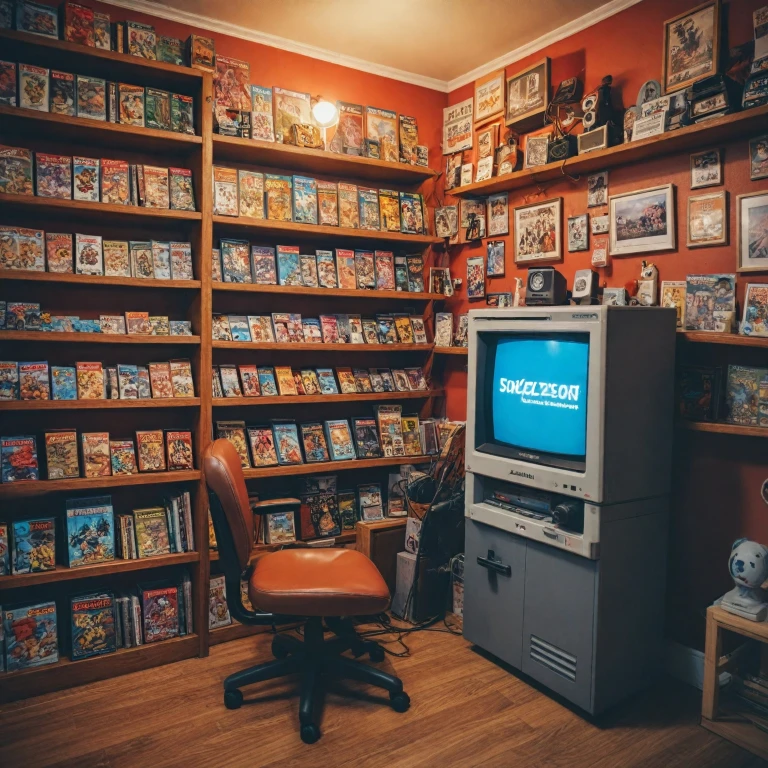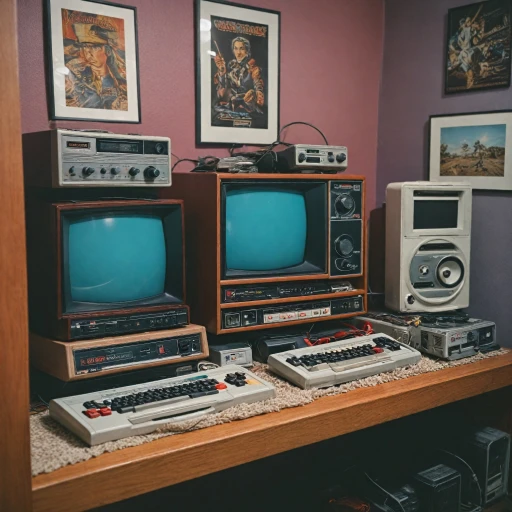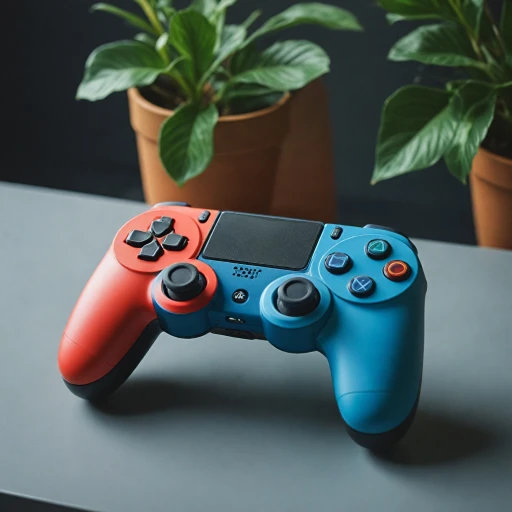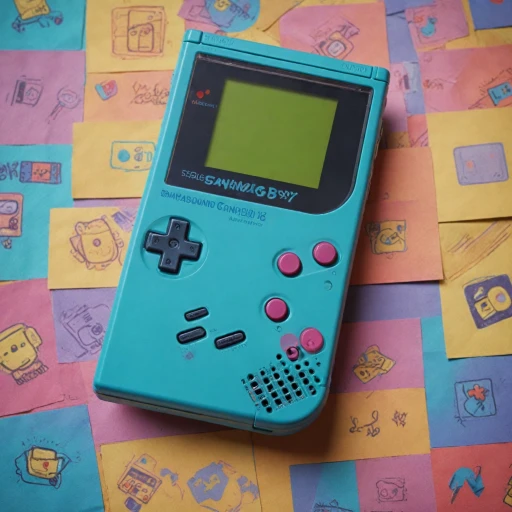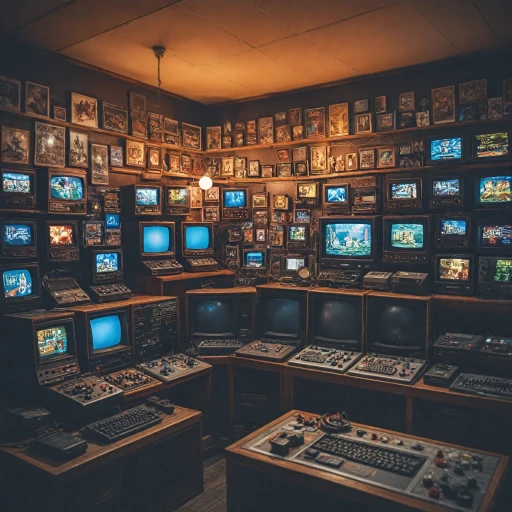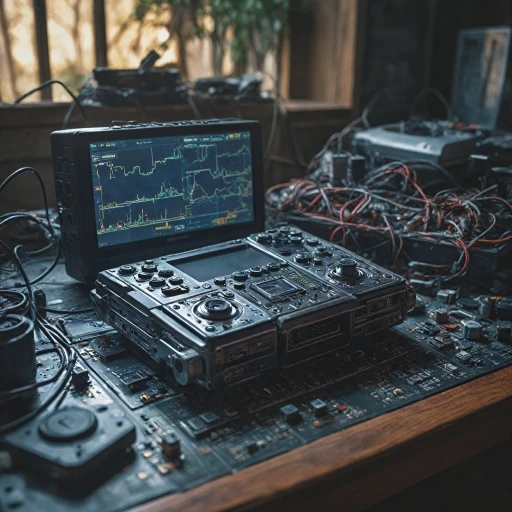
Understanding Gameboy Emulators
The Basics and Appeal of Gameboy Emulators
The move to preserve retro games has taken a prominent spot in the world of gaming, and gameboy emulators are at the heart of this movement. Essentially, a gameboy emulator is a software program that mimics the hardware of a Gameboy console, allowing you to play "boy" games on various modern devices like windows, linux, and even mobile platforms. Gaming enthusiasts cherish these emulators for their ability to bring the nostalgic rush of handheld game experiences without the need for the original gameboy console. They often support a wide range of games, from the classic gameboy titles to gameboy advance and gameboy color games, extending their allure to a broader audience of retro gaming lovers. The demand for such emulators continues to grow as players seek to unlock the vibrancy of the gameboy screen and the simple yet engaging video game play. With options like the visual boy and mgba, one can easily explore the advanced features these emulators offer, such as plug play capabilities and advanced save options. To touch upon the appeal of retro games further, check out the charm of retro gaming shops where nostalgia meets the tangible retro gaming culture. This connection between retro games and emulation presents an ecosystem rich with opportunities to relive childhood gaming moments and reinvent them with today's technology.Benefits of Using Gameboy Emulators
Advantages of Embracing Gameboy Emulators
Using Gameboy emulators offers a multitude of benefits that enhance the retro gaming experience for both enthusiasts and newcomers alike. With the technological advancements in emulation, gamers have access to a plethora of features that original Gameboy consoles simply couldn't support. Firstly, the ability to play a vast library of Gameboy titles, including Gameboy Color and Gameboy Advance games, on various platforms such as Windows and Linux, broadens the gaming scope beyond the limitations of the original hardware. This accessibility allows players to enjoy their favorite classic games on modern devices, effectively transforming their computers or handheld devices into portable gaming consoles. Another significant benefit is the improved visual experience. Gameboy emulators often include features like enhanced screen resolution and color palettes, making the retro games visually appealing on modern displays. Additionally, features like save states enable players to save their game progress at any point, removing the frustration of having to restart from the last checkpoint. Emulators such as mGBA and VisualBoy are particularly popular for their user-friendly interfaces and robust feature sets. They offer customizable controls, ensuring that players can tailor their gameplay experience to their preferences. Many emulators also support additional features like multiplayer modes, which are a boon for those longing to relive the social aspects of retro gaming. For those concerned about storage space, emulators provide an efficient solution by allowing players to maintain a digital list of games. This digital convenience eliminates the need for physical cartridges, preventing wear and tear on original game copies while safeguarding the preservation of classic titles. Explore how these game emulators are redefining the possibilities of retro gaming by visiting our detailed post on the world of video game emulators.Choosing the Right Gameboy Emulator
Selecting an Emulator for Your Gaming Needs
Choosing the right Gameboy emulator can be a daunting task, given the multitude of options available. However, understanding your specific needs and preferences can simplify the process. Here's a quick guide to help you navigate your choices:- Platform Compatibility: Before diving into the world of Gameboy emulators, consider the operating system of your device. Popular emulators like mGBA offer extensive support across Windows, Linux, and other platforms, ensuring broad compatibility.
- Gameboy Variants Support: Different emulators offer support for various Gameboy models. For instance, some emulators provide robust compatibility for the original Gameboy, Gameboy Color, and Gameboy Advance, allowing you to enjoy an array of retro games.
- Features and Functionality: Look for an emulator that offers features like save states, customizable controls, and screen stretch options. These can enhance your gaming experience by providing the ability to save progress seamlessly and play in your preferred visual settings.
- Performance and Stability: When choosing an emulator, performance and stability are key. Opt for one that efficiently handles the Gameboy CPU loads, ensuring smooth emulation without frequent crashes or glitches.
- User-Friendly Interface: A straightforward and intuitive user interface can significantly improve your emulator experience. The easier it is to navigate the emulator, the more enjoyable your gaming sessions will be.
Legal and Ethical Considerations
Legal Boundaries and Ethical Gaming
Navigating the world of Gameboy emulators involves understanding the legal and ethical landscape. While emulators themselves are legal, the games or ROMs you play on them are where complexity arises. Understanding these intricacies is crucial for any gamer to ensure compliance and respect for intellectual property. Legal Considerations:- ROM Legality: While some gamers might assume downloading ROMs is acceptable for personal use, this is a misconception. The legality primarily hinges on whether you own the original game on a physical Gameboy cartridge. Even then, creating a digital copy can vary by jurisdiction.
- Country-Specific Laws: Depending on where you live, the laws regarding ROMs can differ significantly. Some countries have more relaxed regulations, while others have stringent laws protecting video game copyrights.
- Emulation Software: Emulators like mGBA, Visual Boy Advance, and others are legal to download and use. These programs themselves do not contain any copyrighted material.
- Respect for Developers: While retro games are no longer directly generating revenue for creators, respecting the intellectual property rights of Nintendo and other developers remains important.
- Community Impact: The retro gaming community often shares ROMs without considering the implications. Emulating responsibly helps maintain a positive image of this community.
Impact on Gaming Culture
Emulation's Role in Retro Gaming's Revival
The world of gameboy emulators plays a significant part in the resurgence of retro gaming. With technology advancing rapidly, emulators offer a way to play classic Gameboy titles on modern platforms. This has made retro games more accessible to a new generation of gamers who may not own original hardware like the Game Boy Color or Game Boy Advance. These emulators, such as the popular mGBA and Visual Boy, provide features not possible on the original console, like improved screen resolution, advanced save states, and plug-and-play support. This enhances the gaming experience, encouraging players to dive into a library of timeless titles. Moreover, the increased interest in retro games due to emulators has influenced the demand for re-releases of these classic titles on modern consoles. Companies like Nintendo have tapped into nostalgia by offering downloadable versions of Gameboy titles on devices such as the Switch. This trend underscores emulation's impact on extending the shelf life of beloved games. On another note, the use of emulators on different operating systems like Windows, Linux, and more recently, handheld devices, has democratized access to retro gaming. Users can easily switch from playing on a desktop to a handheld game console, maintaining their progress thanks to cloud save features. The cultural impact is also noticeable in the way game emulators are sparking discussions about video game preservation. As physical cartridges and game boy consoles become rarer, maintaining a digital record through emulators is essential for historical and educational purposes. Emulators have undoubtedly become an integral tool for those passionate about keeping the spirit of retro video gaming alive, encouraging both veterans and newcomers to appreciate the charm of classic video game systems. While there are legal and ethical considerations to navigate, the undeniable influence of emulation on retro gaming culture continues to shape how we interact with these pieces of gaming history.Future of Gameboy Emulation
Emerging Trends in Gameboy Emulation
The future of Gameboy emulation is an exciting prospect for gaming enthusiasts and newcomers alike. As technology advances, the capabilities of these emulators continue to expand, offering even richer experiences than ever before with their retro gaming charm.
One of the key developments on the horizon is improved compatibility and support for various operating systems such as Windows, Linux, and other portable platforms. Emulators like mgba are being designed to support not just the classic Game Boy, but also the Gameboy Advance and Gameboy Color, thereby expanding the range of games available to players. Furthermore, there is a growing integration of enhanced features including better screen resolution, color correction, and advanced save options.
The retro gaming community is also seeing a shift towards open-source models of emulation, which encourages community-driven improvements and makes it easier for emulators to adapt to new hardware and software environments. This trend supports the continuous evolution of emulation software, allowing developers to quickly respond to emerging gaming needs and preferences.
Beyond technological advancements, there is an increased focus on user experience. Developers are streamlining interfaces to create a simple plug-and-play setup, which mimics the nostalgic experience of the original consoles. This ease of use is vital in attracting a wider audience, including those who may not be tech-savvy but wish to relive beloved video games from their youth.
While the landscape of Gameboy emulation is bustling with potential, it is essential to consider the legal and ethical implications. This ongoing discussion plays a significant role in shaping the legitimacy and acceptance of emulators within the gaming industry. As these conversations progress, they will likely influence the direction and regulations concerning the future of game emulation.
In conclusion, the future of Gameboy emulation holds promising opportunities for both technological advancement and cultural impact. As developers innovate and adapt, the classic allure of Gameboy games is bound to endure, offering a seamless bridge between the nostalgic charm of retro games and the innovative spirit of modern gaming culture.

